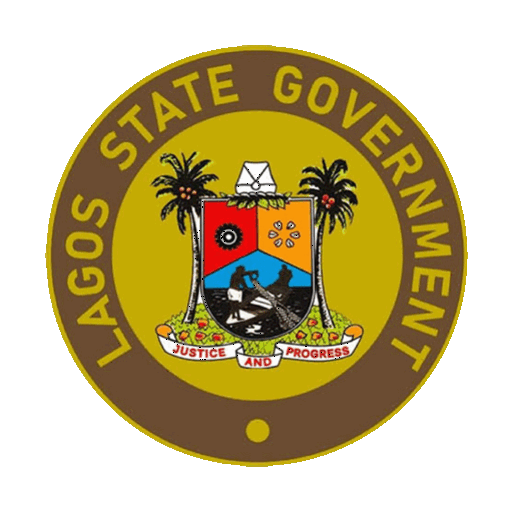
Sidikat Folami’s Bold Mission to Revolutionize Textile Recycling in Nigeria.
In a country where fashion thrives but waste piles higher each day, Sidikat Folami is charting a new path, one that reimagines the future of Nigeria’s textile industry. As the founder of Mateen Lander, Folami is not only tackling the environmental crisis of textile waste but also building a movement around sustainability, innovation, and women’s empowerment. Her journey started from sewing old wrappers as a teenager to leading a pioneering textile recycling company which is a powerful testament to vision, resilience, and a deep commitment to change. Through Mateen Lander, she’s proving that waste can indeed become wealth, and that Nigeria’s fashion waste problem can be part of the solution to a greener, more circular economy.
1. Can you introduce yourself and your position in Mateen Lander?
I’m Sidikat Folami, the founder and CEO of Mateen Lander Limited, a company dedicated to addressing Nigeria’s growing textile waste problem by recycling and repurposing it for industrial use. My journey in the garment industry spans over a decade, and it’s been driven by both a deep environmental consciousness and a passion for creating sustainable solutions. My career began in the fashion space, but it was through firsthand experience with waste generation that I recognized the pressing need for a systemic change in how we handle textile waste in Nigeria. I now dedicate my work to pioneering textile recycling solutions and empowering others in the circular economy space.
2. What specific gap in Nigeria’s waste management and textile industry led to the founding of Mateen Lander?
The gap I noticed was two-fold: the massive amount of textile waste produced daily and the lack of effective systems to address it. In my own fashion business, I was generating a significant amount of textile waste scraps from garment making and leftover fabrics that would end up in landfills. This wasn’t an isolated problem; I saw it throughout the industry. Textile waste is one of the largest contributors to environmental pollution, and Nigeria was no exception. The issue was compounded by the absence of a scalable system to recycle textiles and repurpose them for new uses. Seeing this challenge, I was compelled to create Mateen Lander with the aim of changing the narrative from textile waste to a valuable resource that could be recycled into new materials.
3. How does Mateen Lander’s approach to textile recycling differ from traditional waste management practices?
Our approach goes beyond traditional waste management because we don’t just collect and dispose of waste; we focus on turning textile waste into raw materials that can be reused in various industries. Traditional methods often involve sending waste to landfills or incineration, but that only delays the inevitable harm to the environment. At Mateen Lander, we fiberize textile waste, breaking it down into clean, reusable fibers. These fibers are then repurposed in industries like construction, automotive manufacturing, and even eco-friendly products. Unlike the standard recycling processes, which often overlook textiles, we view waste as an opportunity for innovation and resource recovery.
4. What are the most critical technological advancements you’ve implemented in textile sorting, fiberizing, and recycling?
In the early stages, our biggest challenge was how to efficiently sort and process the vast variety of textile materials we collect. We’ve invested in semi-automated technology to streamline the sorting process, making it more accurate and faster, which is crucial for scaling our operations. Once sorted, the textile waste goes through a fiberizing process where we break down the material into fibers that can be used in industrial applications. This step is key to ensuring that the waste is not just reduced but transformed into something of value. We are also working closely with partners to improve the technology we use, ensuring that we can produce high-quality, market-ready fibers. As the technology in textile recycling improves, we plan to stay ahead of the curve, integrating more advanced methods for sorting, processing, and repurposing textile waste.
5. In what ways has Mateen Lander contributed to reducing landfill waste and promoting circular economy principles in Nigeria?
Since our launch in 2024, we’ve diverted over 35 tonnes of textile waste from ending up in landfills. This not only reduces the burden on our already overtaxed waste management system, but it also ensures that valuable materials are kept out of the waste stream. We aim to close the loop of textile production by creating a circular economy model where waste is collected, processed, and transformed into useful products. In addition to our fiberizing efforts, we also educate the public about the importance of recycling and how textiles, often seen as trash, can be turned into resources that drive economic growth. Through our work, we’re not only helping reduce pollution but also contributing to job creation, skills development, and the promotion of sustainable practices across Nigeria.
6. How do you measure the environmental and economic impact of your textile recycling efforts?
We measure our impact through several metrics. On the environmental side, we track the volume of textile waste we collect and process, which directly correlates with the amount of waste diverted from landfills. We also monitor the reduction in carbon emissions that comes from recycling textiles instead of manufacturing new products. On the economic side, we look at the jobs created through our various programs especially for women in the local communities and the long-term economic value generated by creating a circular textile economy. Additionally, our partnerships with industries and businesses show that there is a growing demand for recycled textile fibers, which serves as a testament to the economic viability of our efforts. As we continue to scale, we expect our impact to grow exponentially.
7. What are the biggest regulatory or industry challenges hindering large-scale textile recycling in Nigeria, and how can they be addressed?
One of the biggest challenges we face is access to funding and resources. The recycling process is capital-intensive, and the infrastructure for large-scale textile recycling in Nigeria is still underdeveloped. We need both financial investment and policy support to make this a viable, large-scale operation. Additionally, there’s a knowledge gap in the industry. Many potential partners, such as textile manufacturers and industrial buyers, are not fully aware of the benefits of using recycled fibers. To address these challenges, we need government-backed incentives for recycling businesses, more public awareness campaigns to encourage waste segregation, and funding to help businesses scale their recycling operations. Policy reforms that encourage sustainable manufacturing practices and support the circular economy could also be key drivers of change.
8. How do you ensure that your partnerships with garment makers and fashion brands lead to tangible sustainability outcomes?
We focus on creating long-term, mutually beneficial relationships with garment makers and fashion brands. Our partnerships aren’t just transactional; we work closely with these companies to help them integrate textile waste management into their operations. This involves educating them on best practices for textile waste disposal and offering viable solutions for recycling and upcycling their waste materials. Through our network of collection hubs across Lagos, we make it easy for garment makers to send their textile waste to us, ensuring that they are part of the circular economy. We also provide data and reporting to show the tangible environmental and economic benefits of their participation in textile recycling, which helps keep them engaged and committed to sustainable practices.
9. What role does consumer behavior play in textile waste generation, and how is Mateen Lander working to drive awareness and behavioral change?
Consumer behavior is a huge factor in textile waste generation. In many cases, people discard clothes and fabrics without considering their environmental impact. The rise of fast fashion has only exacerbated this problem, with people buying clothes that are cheap but disposable. At Mateen Lander, we are working hard to change this mindset through public education campaigns, community outreach programs, and partnerships with organizations like Lagos Women Run. We’re teaching consumers that the lifecycle of a garment doesn’t end when they no longer want it. By encouraging people to think more consciously about their purchases, we aim to reduce demand for new, unsustainable textiles and promote the value of recycling and upcycling.
10. What policies or incentives should the Nigerian government introduce to support sustainable textile recycling?
From what we’ve seen, especially with the support we got from the Office of Climate Change and Circular Economy since August 2024, the right policies can make a huge difference. That’s how we were able to align with the UN’s 2025 theme of Zero Waste in Textile and Fashion. To really move textile recycling forward in Nigeria, the government needs to step in with financial support, things like tax reliefs, grants for small businesses, and maybe even subsidies for those using circular economy models. A lot of people want to do the right thing, but they just don’t have the resources.
We also need proper infrastructure. If there were more collection points and facilities to sort and process textile waste, it would be easier for people and businesses to get involved.
Another big one is segregation, people need to separate textile waste from the rest of their trash. If the government can make that a policy and provide the bins or tools to make it happen, it would help a lot.
And finally, awareness. A lot of people still don’t understand the value in recycling clothes or fabric. So education campaigns, especially in communities and schools, would go a long way.
Honestly, what we’ve achieved so far shows that this is possible but with the right support and policies in place, it could be so much bigger.
11. What is your long-term vision for Mateen Lander, and what steps are you taking to scale your impact nationally and internationally?
My vision for Mateen Lander is to create a thriving textile recycling ecosystem in Nigeria that leads the way in sustainable waste management and circular economy practices. We aim to become the primary partner for textile waste recovery in Nigeria, providing raw materials for various industries while creating significant economic and environmental impact. To scale nationally, we are planning to expand our collection hubs and processing facilities across key regions in Nigeria. On the international front, we are exploring opportunities to collaborate with global brands and companies committed to sustainable sourcing. Our goal is to be part of the global movement that transforms the textile industry into a more sustainable, circular sector.
12. What advice would you give to entrepreneurs and innovators looking to enter the textile recycling and circular economy space in Nigeria?
I would tell them to start with a deep understanding of the market and the challenges that exist. Textile recycling is not an easy venture, but it’s an area with immense potential for impact. Entrepreneurs should be prepared to innovate and think outside the box, especially when it comes to scaling solutions. Building strong partnerships is also key, whether with government bodies, other businesses, or local communities. And most importantly, they should remain committed to sustainability and long-term impact because this is not just about business; it’s about creating a better, cleaner world for future generations.


